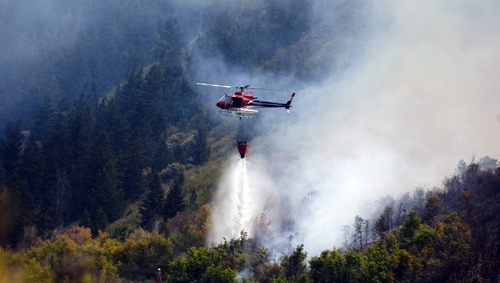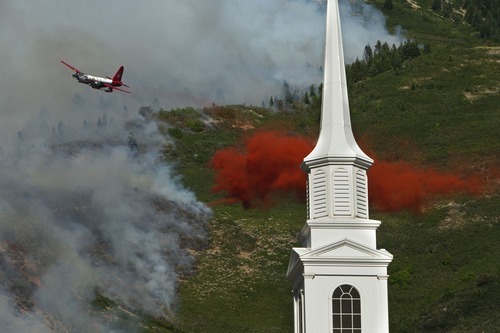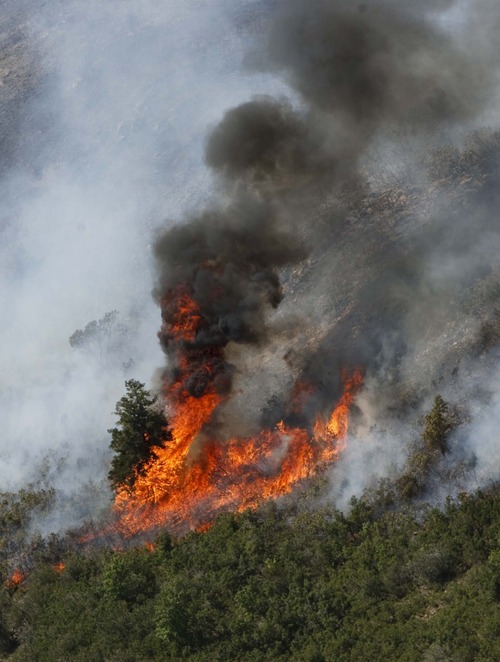This is an archived article that was published on sltrib.com in 2013, and information in the article may be outdated. It is provided only for personal research purposes and may not be reprinted.
State and federal officials are preparing for another busy fire season in 2013, but it is unlikely that wildfire activity around the state will come close to last year's record-setting fire season.
During a pre-season media conference Thursday at the Utah Department of Natural Resources building in Salt Lake City, officials from DNR, the federal Bureau of Land Management and the United States Forest Service said snowpack levels throughout most of the state are well below normal levels, a major indicator of a dry summer in the months ahead.
"There's not a lot of snow up there," said DNR spokesman Jason Curry, "but we're sitting a lot better than we were last year at this time."
According to data from the U.S. Department of Agriculture's Natural Resources Conservation Service, snow pack along the Wasatch front is 61 percent of where it should normally be at this time of year. In Utah County, it is even drier, with snow pack only reaching up to 57 percent of normal levels. Southeastern Utah is 56 percent of normal and Duchesne County's snowpack totals are 67 percent of where they should be.
Conditions are better in the area around the lower Sevier River, which is 94 percent of normal. The Raft River area in the north west part of the state also is sitting at 94 percent.
While drier than normal, snowpack levels are looking a lot better than last year, when much of central and southern Utah was as low as 25 to 49 percent of normal.
Last year saw an explosion in dangerous fires in the summer months that caused evacuations and destroyed homes in some areas. Half of all the fires last year were determined to be human-caused.
By July of last year, the fires had already burned 394,614 acres with the cost of fighting them rocketing to almost $50 million.
Many early season fires are human-caused, Curry said, so it will be up to people recreating in the mountains as it begins to warm up to take necessary precautions.
"People can make the difference between a catastrophe and a good time," Curry said.
Twitter: @KimballBennion







